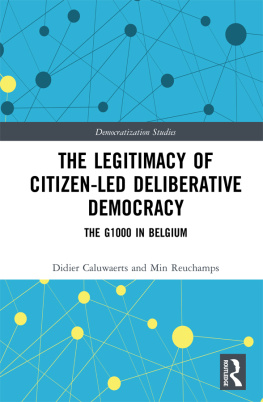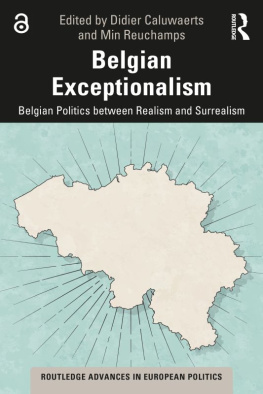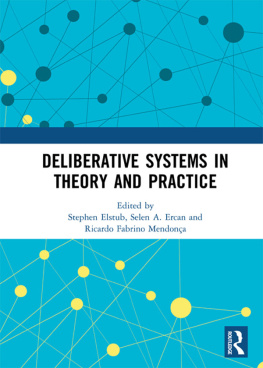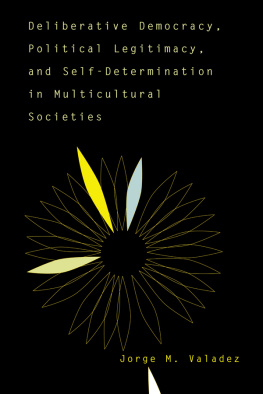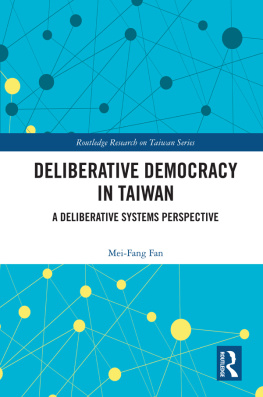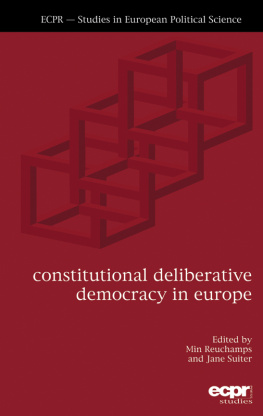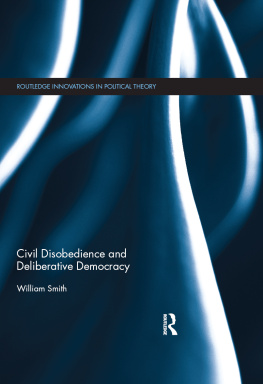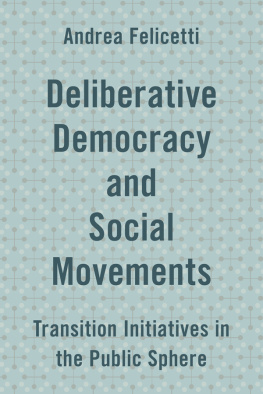The Legitimacy of Citizen-led Deliberative Democracy
For deliberative democrats, the strength of any democracy is public deliberation, the frequent and reasoned discussion between citizens on political issues.
Despite all the theoretical claims made about deliberative systems, the question remains how to empirically assess both the legitimacy and function of deliberative systems in the real world and how individual sites of deliberation interact within the larger political system. In other words, what is the legitimacy of each individual component and under which conditions can these components improve the legitimacy of the wider system? These are the central research questions for this book, looking particularly through the prism of the citizen-led mini-public G1000 in Belgium, which grew out of a feeling of deep democratic crisis. Offering empirically measurable translations of philosophical concepts, the book enhances our understanding of how political systems function, and of the viability of a deliberative democracy at a larger scale. Finally, it provokes fundamental normative questions on how we want to shape our society, especially divided ones.
This text will be of key interest to scholars, students and practitioners of deliberative democracy, and to those interested in democratic theory and more broadly political science, communication, sociology and philosophy.
Didier Caluwaerts is Assistant Professor of Public Policy at the Vrije Universiteit Brussel, Belgium. His research interests are deliberative and participatory democracy, and democratic, social and public-sector innovation.
Min Reuchamps is Professor of Political Science at the Universit Catholique de Louvain, Belgium. His teaching and research interests are federalism and multi-level governance, democracy and its different dimensions, as well as participatory and deliberative methods.
Democratization Studies
(Formerly Democratization Studies, Frank Cass)
Democratization Studies combines theoretical and comparative studies with detailed analyses of issues central to democratic progress and its performance, all over the world.
The books in this series aim to encourage debate on the many aspects of democratization that are of interest to policy-makers, administrators and journalists, aid and development personnel, as well as to all those involved in education.
Democratization in the 21st Century
Reviving transitology
Edited by Mohammad-Mahmoud Ould Mohamedou and Timothy D. Sisk
Democratizing Public Governance in Developing Nations
With special reference to Africa
Edited by M. Shamsul Haque, Anastase Shyaka and Gedeon M. Mudacumura
Political Participation, Diffused Governance, and the Transformation of Democracy
Patterns of change
Yvette Peters
When Democracies Collapse
Assessing transitions to non-democratic regimes in the contemporary world
Luca Tomini
Challenges of Democracy in the 21st Century
Concepts, methods, causality and the quality of democracy
Edited by Luca Tomini and Giulia Sandri
The Legitimacy of Citizen-led Deliberative Democracy
The G1000 in Belgium
Didier Caluwaerts and Min Reuchamps
The Legitimacy of Citizen-led Deliberative Democracy
The G1000 in Belgium
Didier Caluwaerts and Min Reuchamps
First published 2018
by Routledge
2 Park Square, Milton Park, Abingdon, Oxon OX14 4RN
and by Routledge
711 Third Avenue, New York, NY 10017
Routledge is an imprint of the Taylor & Francis Group, an informa business
2018 Didier Caluwaerts and Min Reuchamps
The right of Didier Caluwaerts and Min Reuchamps to be identified as authors of this work has been asserted by them in accordance with sections 77 and 78 of the Copyright, Designs and Patents Act 1988.
All rights reserved. No part of this book may be reprinted or reproduced or utilised in any form or by any electronic, mechanical, or other means, now known or hereafter invented, including photocopying and recording, or in any information storage or retrieval system, without permission in writing from the publishers.
Trademark notice: Product or corporate names may be trademarks or registered trademarks, and are used only for identification and explanation without intent to infringe.
British Library Cataloguing in Publication Data
A catalogue record for this book is available from the British Library
Library of Congress Cataloging in Publication Data
Names: Caluwaerts, Didier, author. | Reuchamps, Min, author.
Title: The legitimacy of citizen-led deliberative democracy : the G1000 in Belgium / Didier Caluwaerts and Min Reuchamps.
Description: Abingdon, Oxon ; New York, NY : Routledge, 2018. |
Series: Democratization studies | Includes bibliographical references and index.
Identifiers: LCCN 2018002854 | ISBN 9781138281943 (hardback : alk. paper) | ISBN 9781315270890 (ebook)
Subjects: LCSH: G1000 (Project) | Political participationBelgium. | DemocracyBelgium. | Deliberative democracyBelgium. | Representative government and representationBelgium.
Classification: LCC JN6301 .C355 2018 | DDC 323/.04209493dc23
LC record available at https://lccn.loc.gov/2018002854
ISBN: 978-1-138-28194-3 (hbk)
ISBN: 978-1-315-27089-0 (ebk)
Typeset in Times New Roman
by Out of House Publishing
Contents
Lots of people have contributed to this book project: not the least, of course, all the participants of the G1000 and its as many volunteers and supporters. Without their participation neither the G1000 nor this book would have been possible. It would not be possible to individually thank them all but this book is dedicated to our common quest for rejuvenating democracy.
Many colleagues also deserve our life-long recognition. Some of them have collected and analysed data with us. With others, we have published opinions, reports, articles and book chapters. Many more have critically read and discussed our works and their comments have deliberatively enriched our thoughts and reflections on the legitimacy of deliberative democracy.
All the data collections and research that are the heart of this book were made possible with the financial support of the Fonds de la Recherche Scientifique FNRS, the Fonds spciaux pour la recherche of the Universit catholique de Louvain, the Research Foundation Flanders, the Political Science Department at the Vrije Universiteit Brussel and the PartiRep inter-university attraction pole.
Our gratitude also goes to the editors at Routledge for giving us the opportunity to write this book. Special thanks go to Sophie Iddamalgoda and the production team for their support throughout the publication process.
Our final and well-deserved thanks go to Sophie Devillers, who served as a highly dedicated research assistant and helped us to bring together the rich empirical material to a meaningful story that has implications far beyond our engagement in the G1000.
Needless to say, all remaining errors are ours.
Democracy means many things to many people. For some it means that citizens have the right to express their political preferences through free elections. For deliberative democrats, the strength of any democracy is through public deliberation, i.e. the frequent and reasoned discussion between citizens on political issues. Through talking to each other, citizens identify good incentives and reject bad ones, which eventually leads to well-considered decision-making. This deliberative model started out in life as a theory of legitimacy (Cohen, 1989; Dryzek, 2001; Parkinson, 2006). By including everyone affected in the process leading to a decision, deliberation could prove capable of generating political outcomes that receive broad public support, even when there is strong disagreement on the aims and values a polity should promote. Deliberation is therefore said to be able to bridge the gap between citizens and their democratic system.


